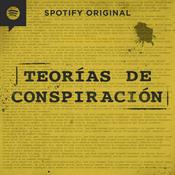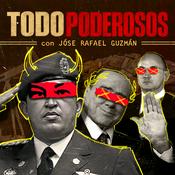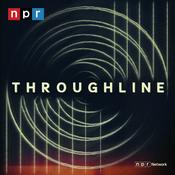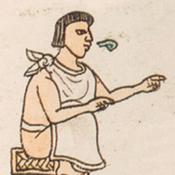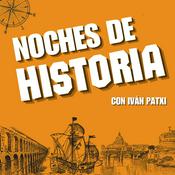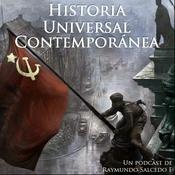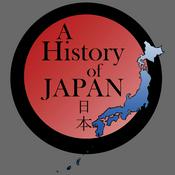132 episodios
- The story of how the co-founder and first General Secretary of the Chinese Communist Party became a Trotskyist.
Further reading:
Gregor Benton, China’s Urban Revolutionaries: Explorations in the History of Chinese Trotskyism, 1921-1952
Gregor Benton, Prophets Unarmed: Chinese Trotskyists in Revolution, War, Jail, and the Return from Limbo
Lee Feigon, Chen Duxiu: Founder of the Chinese Communist Party
Chang Kuo-t’ao [Zhang Guotao], The Rise of the Chinese Communist Party (2 volumes)
Tony Saich, The Rise to Power of the Chinese Communist Party
Jane Price, Cadres, Commanders, and Commissars: The Training of the Chinese Communist Leadership, 1920-1945
Some names from this episode:
Chen Duxiu, co-founder of the Communist Party of China
Li Dazhao, co-founder of the Communist Party of China
Zheng Chaolin, Chinese Trotskyist
Li Lisan, leading Communist
Yin Kuan, resigned as Provincial Secretary in Anhui
Peng Shuzhi, resigned as Provincial Secretary in Zhili
Wang Zekai, Chinese Trotskyist
Liu Bojian, former Provincial Secretary in Hubei
Ren Xu, Chinese Trotskyist
Xiang Ying, Jiangsu Provincial Secretary following the 6th Party Congress
Cai Zhende, member of Jiangsu Provincial Committee
Zhou Enlai, head of the Organization Department of the Central Committee
Wang Ruofei, sent to work in a factory in Moscow as punishment for Trotskyism before recanting
Qu Qiubai, top leader of Communist Party from the summer of 1927 until the Sixth Congress
Zhang Guotao, leading Communist
Episode artwork:
Chen Duxiu with Peng Shuzi in 1932
Support the show Did the German Communists Really Say “After Hitler, Our Turn?” Exploring the Historical Evidence
21/11/2025 | 19 minResponding to listener queries about the evidence behind this common assertion regarding the KPD’s underestimation of the fascist threat.
Further reading:
Jane Degras, ed., The Communist International, 1919-1943: Documents, vol. 3: 1929-1943
International Press Correspondence
Communist International journal (1933)
Documents from the 13th Plenum of the ECCI
Some names from this episode:
Chen Duxiu, co-founder of the Communist Party of China
Hermann Remmele, leading KPD Reichstag member
Heinrich Brüning, German Chancellor from 1930-1932
Osip Piatnitsky, leading Comintern figure
Wilhelm Pieck, leader of KPD from 1934
Episode artwork:
Autonome Antifa (M) poster from 1991
Support the show- The 1920s that is. The Comintern lets the Chinese Communist Party’s Central Committee know how the objective conditions in China are ripening for revolution.
Further reading:
Nikolai Bukharin, “On the International Situation and the Tasks of the Chinese Communist Party”
Nicholas Kozlov and Eric Weitz, “Reflections on the Origins of the ‘Third Period’: Bukharin, the Comintern, and the Political Economy of Weimar Germany”
Robin Kelley, Hammer and Hoe: Alabama Communists during the Great Depression
Theodore Rosengarten, All God’s Dangers: The Life of Nate Shaw
Sebastian Haffner, Failure of a Revolution: Germany 1918-1919
Chen Jian, Zhou Enlai: A Life
Jane Degras, ed., The Communist International, 1919-1943: Documents, vol. 3: 1929-1943
So Wai-chor, The Kuomintang Left in the National Revolution, 1924–1931
Some names from this episode:
Nikolai Bukharin, general secretary of the executive committee of the Comintern (1926-1929)
Rosa Luxemburg, German communist leader murdered in 1919
Karl Liebknecht, German communist leader murdered in 1919
Li Lisan, leading Communist
Stalin, Stalin
Feng Yuxiang, northwestern warlord who turned on Chiang Kai-shek during Sino-Soviet war
Wang Jingwei, the overall leader of the Guomindang Left
Chen Gongbo, main ideologue of the Reorganization Comrades Association
Chen Duxiu, co-founder of the Communist Party
He Long, leader of a soviet in the Hunan-Hubei border region
Episode artwork:
Li Lisan with family
Support the show - How the Chinese Communist Party tried to turn war into revolution in Manchuria in 1929.
Further reading:
Bruce A. Elleman and Stephen Kotkin, eds., Manchurian Railways and the Opening of China
Michael M. Walker, The 1929 Sino-Soviet War
Chong-Sik Lee, Revolutionary Struggle in Manchuria: Chinese Communism and Soviet Interest, 1922-1945
“Japan Moves Town to Reach Coal Vein”
Some names from this episode:
Miles Lampson, British minister to China
Yang Jingyu, Fushun special branch secretary of the CCP
Liu Shaoqi, Communist labor organizer and secretary of the CCP’s Manchurian Committee from June 1929 to March 1930
Ting Chün-yang, veteran communist sent to Manchuria
Meng Yongqian, veteran communist sent to Manchuria
Episode artwork:
Postcard of a Fushun coal mine from the early 1940s
Support the show - The final Soviet offensive, and some details on Chiang Ching-kuo’s activities as a student in Moscow.
Further reading:
Bruce A. Elleman and Stephen Kotkin, eds., Manchurian Railways and the Opening of China
Michael M. Walker, The 1929 Sino-Soviet War
Jay Taylor, The Generalissimo's Son: Chiang Ching-Kuo and the Revolutions in China and Taiwan
Some names from this episode:
Zhang Xueliang, Manchurian warlord
Feng Yuxiang, northwestern warlord who turned on Chiang Kai-shek during Sino-Soviet war
Joseph Stilwell, United States military attaché in China
Mikhail Borodin, Comintern agent and political head of Soviet mission to aid the Guomindang during the first Communist-Guomindang united front
Chiang Ching-kuo, son of Chiang Kai-shek
Zhou Enlai, leading Communist
Vasily Blyukher, commander of the Special Far Eastern Army
Aleksandr Cherepanov, commander of the 39th Rifle Division in the Soviet Far East
Episode artwork: Picture of a young Chiang Ching-kuo
Support the show
Más podcasts de Historia
Podcasts a la moda de Historia
Acerca de People's History of Ideas Podcast
In this podcast, Matthew Rothwell, author of Transpacific Revolutionaries: The Chinese Revolution in Latin America, explores the global history of ideas related to rebellion and revolution. The main focus of this podcast for the near future will be on the history of the Chinese Revolution, going all the way back to its roots in the initial Chinese reactions to British imperialism during the Opium War of 1839-1842, and then following the development of the revolution and many of the ideas that were products of the revolution through to their transnational diffusion in the late 20th century.
Sitio web del podcastEscucha People's History of Ideas Podcast, Escándalo Mexicano y muchos más podcasts de todo el mundo con la aplicación de radio.net
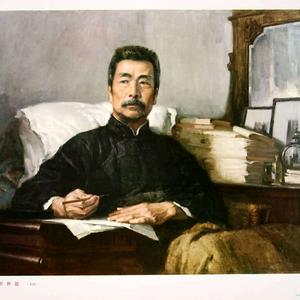
Descarga la app gratuita: radio.net
- Añadir radios y podcasts a favoritos
- Transmisión por Wi-Fi y Bluetooth
- Carplay & Android Auto compatible
- Muchas otras funciones de la app
Descarga la app gratuita: radio.net
- Añadir radios y podcasts a favoritos
- Transmisión por Wi-Fi y Bluetooth
- Carplay & Android Auto compatible
- Muchas otras funciones de la app


People's History of Ideas Podcast
Escanea el código,
Descarga la app,
Escucha.
Descarga la app,
Escucha.






